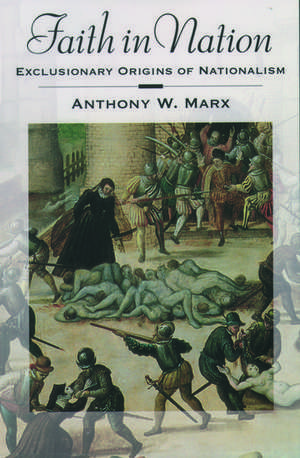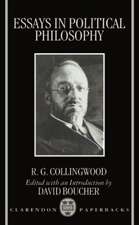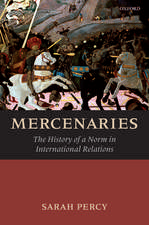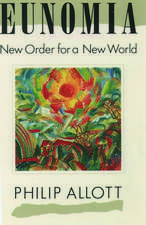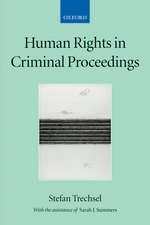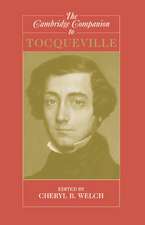Faith in Nation: Exclusionary Origins of Nationalism
Autor Anthony W. Marxen Limba Engleză Paperback – 19 mai 2005
Preț: 238.42 lei
Nou
Puncte Express: 358
Preț estimativ în valută:
45.63€ • 47.43$ • 37.80£
45.63€ • 47.43$ • 37.80£
Carte tipărită la comandă
Livrare economică 25-31 ianuarie 25
Preluare comenzi: 021 569.72.76
Specificații
ISBN-13: 9780195182590
ISBN-10: 0195182596
Pagini: 288
Dimensiuni: 159 x 232 x 18 mm
Greutate: 0.37 kg
Editura: Oxford University Press
Colecția OUP USA
Locul publicării:New York, United States
ISBN-10: 0195182596
Pagini: 288
Dimensiuni: 159 x 232 x 18 mm
Greutate: 0.37 kg
Editura: Oxford University Press
Colecția OUP USA
Locul publicării:New York, United States
Recenzii
"Marx has a case to argue and he argues it forcefully, thereby significantly advancing a debate that has tended, in recent years, to languish in a smug and unquestioning liberal consensus. A major contribution to the interdisciplinary literature on nationalism." --Partha Chatterjee, Centre for Studies in Social Sciences, Calcutta
"Rejecting almost every previous account of nationalism - including mine! -- Anthony Marx provocatively locates its European origins in rulers' strategies of building support for their regimes by ruthless labeling and exclusion of those regimes' enemies. Marx's work will make students of contemporary nationalism rethink their subject." Charles Tilly, author of From Mobilization to Revolution and Durable Inequality
"This book is a major addition to the social science literature on nationalism; it is also a powerful argument against many of the most celebrated contemporary writers on the subject . . . The central point of the book is that nationalism results from a process of exclusion (most other writers have stressed inclusion), and particularly from internal discord over religion. As both a political scientist and a scrupulous historian, Marx uses this powerful scheme to explain and differentiate events that occurred in Spain, France, and England in the age of domestic religious conflicts. In this remarkable book, it is Sant Bartholomew whom the author proposes as the patron of nationalism. A grim view, but a rich and persuasive argument." --Foreign Affairs
"Rejecting almost every previous account of nationalism - including mine! -- Anthony Marx provocatively locates its European origins in rulers' strategies of building support for their regimes by ruthless labeling and exclusion of those regimes' enemies. Marx's work will make students of contemporary nationalism rethink their subject." Charles Tilly, author of From Mobilization to Revolution and Durable Inequality
"This book is a major addition to the social science literature on nationalism; it is also a powerful argument against many of the most celebrated contemporary writers on the subject . . . The central point of the book is that nationalism results from a process of exclusion (most other writers have stressed inclusion), and particularly from internal discord over religion. As both a political scientist and a scrupulous historian, Marx uses this powerful scheme to explain and differentiate events that occurred in Spain, France, and England in the age of domestic religious conflicts. In this remarkable book, it is Sant Bartholomew whom the author proposes as the patron of nationalism. A grim view, but a rich and persuasive argument." --Foreign Affairs
Notă biografică
Anthony Marx is the 18th President of Amherst College. Previously, he was Professor of Political Science and Co-Director of the Center for Historical Social Science at Columbia University. He is the author of Making Race and Nation: A Comparison of the United States, South Africa, and Brazil, winner of the Barrington Moore Prize, and co-winner of the Ralph Bunche Award.
